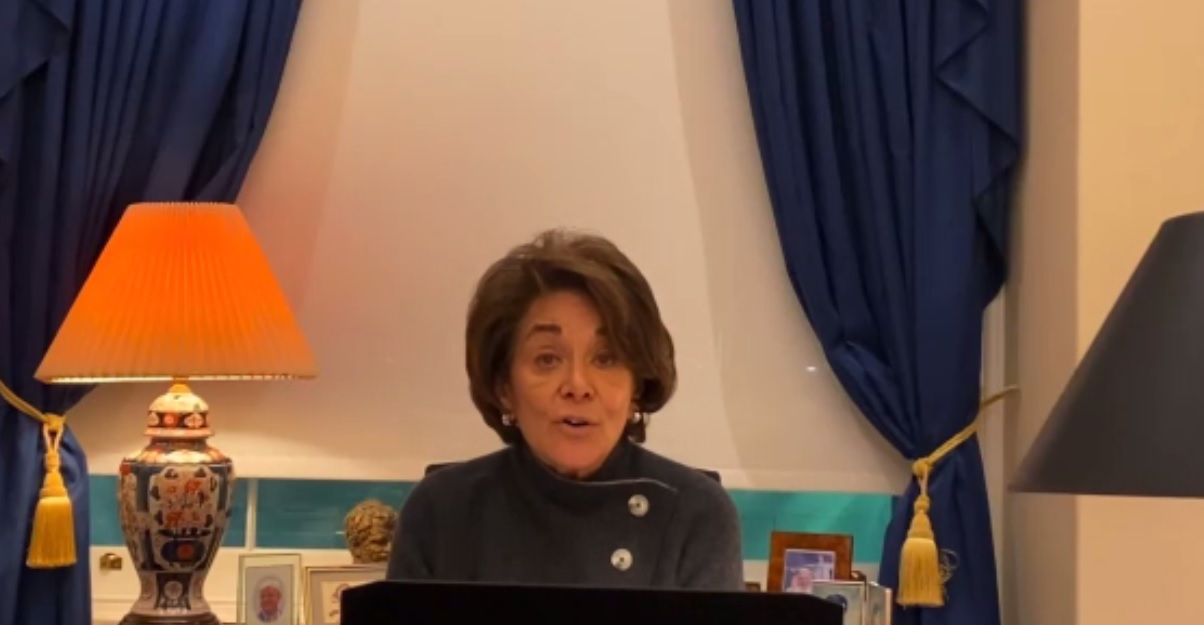Rep. Anna Eshoo: Country Suffers from COVID-19 Online 'Info-demic'
Said the issue is rooted in algorithmic product design

The smarter way to stay on top of the multichannel video marketplace. Sign up below.
You are now subscribed
Your newsletter sign-up was successful
Rep. Anna Eshoo (D-Calif.), a member of the House Energy & Commerce Committee and co-chair of the Congressional Internet Caucus, said COVID-19 and vaccine misinformation is an "info-demic" that requires both short-term and long term solutions.
Also Read: Reps. Urge Big Tech to Address Algorithmic Aid to Extremism
Eshoo was speaking at the 17th annual--and first virtual--State of the Net conference in Washington (or wherever panelists and speakers are remotely).
Eshoo said that, in the short term, the key was to both remove disinformation and take a systematic approach to promoting good information.
Last week, Eshoo and Tom Malinowski (D-N.J.) wrote to the heads of Facebook, Twitter and Google asking them to face up to and fix the "fundamental design features of their social networks that facilitate the spread of extreme, radicalizing content to their users," the sort of radicalizing that resulted in the attack on the Capitol, they pointed out.
Eshoo said there was information overload, both accurate and inaccurate, the latter including conspiracy theories on the virus's origins, foreign efforts to undermine trust in U.S. institutions and a sustained effort by former President Donald Trump to spread disinformation, all of which hinders pandemic response.
As an example, she pointed out that half the nursing home workers did not want to take the vaccine, based on what they had read on social media.
The smarter way to stay on top of the multichannel video marketplace. Sign up below.
She said that online platforms and government agencies should collaborate with social media "influencers" to promote vaccine and mask use.
Eshoo said the online misinformation problem is largely one of "product" design, meaning that algorithms were designed to spread content that appeals to emotion rather than on "what is true." She said that path leads down a rabbit hole of conspiracy theories and keeps users in echo chambers of anxiety and fear.
Also Read:NAB Issues COVID-19 Vaccine Messaging Toolkit
Long-term, she said, solutions have to do with fixing that product design, as well as "legal liability." That was almost certainly a reference to the debate on whether and how to eliminate or modify the Sec. 230 shield social media platforms have from civil liability over third-party content on their platforms, like those rabbit holes of conspiracy theories and misinformation.
Short, term, the task was to "do everything we can" to combat COVID-19 misinformation "and the people who spread it."
Contributing editor John Eggerton has been an editor and/or writer on media regulation, legislation and policy for over four decades, including covering the FCC, FTC, Congress, the major media trade associations, and the federal courts. In addition to Multichannel News and Broadcasting + Cable, his work has appeared in Radio World, TV Technology, TV Fax, This Week in Consumer Electronics, Variety and the Encyclopedia Britannica.

